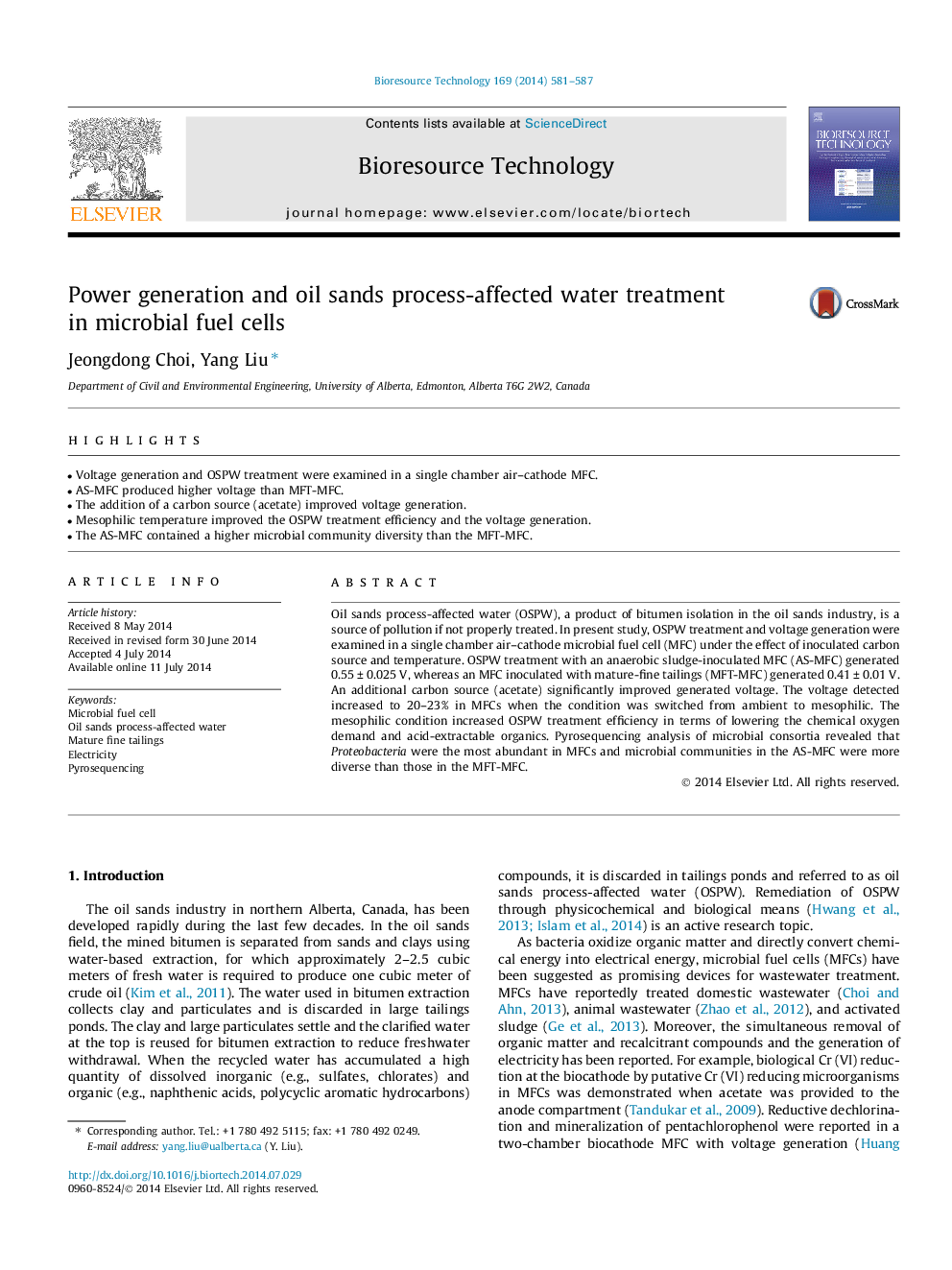| Article ID | Journal | Published Year | Pages | File Type |
|---|---|---|---|---|
| 680656 | Bioresource Technology | 2014 | 7 Pages |
Abstract
Oil sands process-affected water (OSPW), a product of bitumen isolation in the oil sands industry, is a source of pollution if not properly treated. In present study, OSPW treatment and voltage generation were examined in a single chamber air-cathode microbial fuel cell (MFC) under the effect of inoculated carbon source and temperature. OSPW treatment with an anaerobic sludge-inoculated MFC (AS-MFC) generated 0.55 ± 0.025 V, whereas an MFC inoculated with mature-fine tailings (MFT-MFC) generated 0.41 ± 0.01 V. An additional carbon source (acetate) significantly improved generated voltage. The voltage detected increased to 20-23% in MFCs when the condition was switched from ambient to mesophilic. The mesophilic condition increased OSPW treatment efficiency in terms of lowering the chemical oxygen demand and acid-extractable organics. Pyrosequencing analysis of microbial consortia revealed that Proteobacteria were the most abundant in MFCs and microbial communities in the AS-MFC were more diverse than those in the MFT-MFC.
Keywords
Related Topics
Physical Sciences and Engineering
Chemical Engineering
Process Chemistry and Technology
Authors
Jeongdong Choi, Yang Liu,
